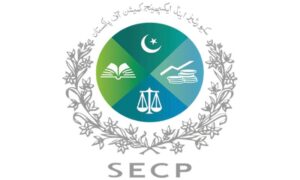Introduction:
Registering an automobile company in Pakistan is a complex process that involves several legal and administrative procedures.
Definitions:
Automobile Company: An automobile company refers to a business entity involved in the manufacturing, assembly, or distribution of automobiles in Pakistan.
Registration: Registration is the official process of obtaining legal recognition for a business entity, ensuring compliance with the relevant laws and regulations.
Process:
To register an automobile company in Pakistan, you need to follow these steps:
Choose a Business Structure:
Determine the type of business structure you want for your automobile company. The common options include a Private Limited Company, Single Member Company, or Public Limited Company. Consult legal and financial advisors to select the most suitable structure for your business.
Name Reservation:
Choose a unique name for your company and submit an application for name reservation to the Securities and Exchange Commission of Pakistan (SECP). The SECP will review the name availability and notify you of its approval or any required modifications.
Memorandum and Articles of Association:
Prepare the Memorandum of Association (MOA) and Articles of Association (AOA) for your company. These documents outline the company’s objectives, share structure, and internal regulations. Ensure compliance with the Companies Act, 2017.
Incorporation:
Once the name is reserved and MOA/AOA are prepared, file an application for incorporation with the SECP. Include all the required documents, such as the MOA, AOA, Form 1 (Declaration of Compliance), Form 21 (Notice of Situation of Registered Office), and Form 29 (Particulars of Directors, Chief Executive, etc.). Pay the prescribed fee along with the application.
Obtain National Tax Number (NTN):
After the company is registered, obtain the National Tax Number (NTN) from the Federal Board of Revenue (FBR). This number is necessary for tax registration and compliance.
Register with Provincial Authorities:
Depending on the location of your company, register with the relevant provincial authorities. This may include registration with the Excise and Taxation Department for sales tax and registration of vehicles.
Licensing and Permits:
Obtain the required licenses and permits for operating an automobile company. This may include licenses from the Pakistan Automotive Manufacturers Association (PAMA) and the Engineering Development Board (EDB), as well as any additional permits required by the government.
Compliance and Reporting:
Ensure compliance with all legal and regulatory requirements. Fulfill annual reporting obligations, hold regular board meetings, maintain proper accounting records, and submit necessary documents to the SECP and other relevant authorities.
Examples:
To better understand the registration process, let’s consider two examples of automobile companies that successfully registered in Pakistan.
XYZ Motors: XYZ Motors is a startup company that aims to manufacture electric vehicles in Pakistan. They followed the registration process outlined below to establish their business legally.
ABC Imports: ABC Imports is an international automobile company that plans to set up a distribution network in Pakistan. They went through the registration process to operate within the legal framework of the country.
Case Studies:
Case Study 1: XYZ Motors
XYZ Motors initiated the registration process by conducting market research to assess the demand for electric vehicles in Pakistan. They prepared a comprehensive business plan, including financial projections, manufacturing processes, and marketing strategies.
They then proceeded to register their company as a Private Limited Company with the Securities and Exchange Commission of Pakistan (SECP). This involved submitting the required documents, such as the company’s memorandum and articles of association, along with the prescribed fee.
Once registered, XYZ Motors obtained a National Tax Number (NTN) from the Federal Board of Revenue (FBR) to comply with tax obligations. They also applied for the necessary licenses and permits from relevant authorities, such as the Pakistan Automotive Manufacturers Association (PAMA) and the Engineering Development Board (EDB).
Case Study 2: ABC Imports
ABC Imports, being an international automobile company, decided to establish a presence in Pakistan through a subsidiary. They formed a wholly-owned subsidiary company by following the steps outlined for XYZ Motors.
After registering the subsidiary, ABC Imports obtained an Import/Export License from the relevant government department, allowing them to import automobiles into Pakistan. They also collaborated with local dealerships and service centers to strengthen their distribution network.
Conclusion:
Registering an automobile company in Pakistan involves multiple steps, including company registration, obtaining tax numbers, acquiring licenses and permits, and complying with various regulations. It is crucial to consult legal and financial experts to ensure a smooth and compliant registration process.
In conclusion, the process of registering an automobile company in Pakistan requires careful planning, adherence to legal requirements, and collaboration with relevant government departments. By following the necessary procedures, businesses can establish a legitimate and successful presence in the Pakistani automobile industry.




